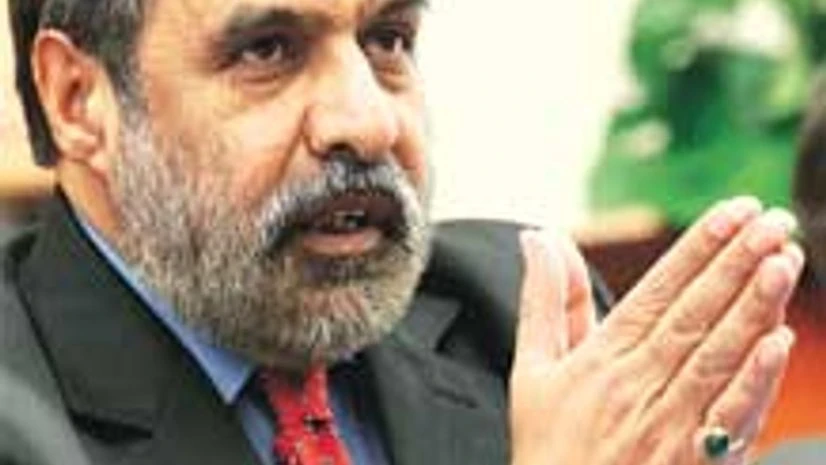It was impossible. I still can't believe it is done," exclaimed an African diplomat, holding back tears amid loud cheering and massive euphoria, as the ninth ministerial conference (MC9) of the World Trade Organization (WTO) was "gavelled to order" in a ceremonial fashion at the Bali Nusa Convention Centre on Saturday morning.
Only a couple of hours before the deal was pronounced "closed", it seemed the talks were headed for yet another collapse, in an idiosyncratic turn of events late Friday night that surprised many. Murmurs of ALBA (Bolivarian Alliance for the Peoples of Our America) countries "raising the red flag against consensus" spread like wildfire within three hours of the WTO secretariat releasing the draft ministerial declaration that indicated a possible breakthrough. It is the first time in the history of the WTO ministerial conferences that a draft declaration was made public. Commerce and Industry Minister Anand Sharma had claimed "victory" before the Indian media, that the government's demand on public stockholding for food security had been accepted.
"We withstood pressure; we did not blink," he stressed. India had demanded reforms to the trade body's norms on farm subsidies for food stockpiling, in the form of a permanent safeguard for its subsidised purchases.
More From This Section
In the hours that followed, intense negotiations and frantic calls for meetings of heads of delegation were scheduled and re-scheduled. Their concern about embargoes delayed consensus on the package until a compromise was struck in the form of a sentence upholding the principle of non-discrimination in goods in transit was added to the final declaration, according to an official statement by WTO.
TRADE TALE
Unfolding of WTO ninth ministerial conference in Nusa Dua
(Bali - Indonesia)
Monday, Dec 2,'13
- Commerce & industry minister arrived in Bali and attended G33 & G20 ministerial, where he lambasted developed countries for not doing enough on agricultural subsidies. He also formally rejected the proposed four-year 'Peace Clause' or interim measure and urged its continuation till a permanent solution is achieved and certain provisions in the Trade Facilitation Agreement (TFA)
- Meeting with WTO D-G Roberto Azevêdo, South African trade minister Rob Davies and Indonesia's trade minister Gita Wirjawan discussing the Bali package and India's stand
- India and South Africa met separately to discuss their strategy
- The WTO MC9 Plenary Session was held with formal opening of MC9 while Sharma convened an IBSA (India, Brazil and South Africa) ministers luncheon seeking their support on the public stockholding schemes
- Many countries, especially developing country members rejected the Bali Package, calling it tilted towards developed countries on food security and TFA provisions
- Sharma also held a bilateral meeting with EU Trade Commissioner Karel de Gucht, where the latter urged "flexibility and compromise" by India
- Sharma gives an aggressive address to fellow trade ministers during a Plenary Session, shakes prospects of a successful MC9 as he made a "no compromise" stance on food stock subsidies
- EU Trade Commissioner Gucht addressed a press conference, where he urged India to relent and "not to block the negotiations"
- Developed countries indicated it would be "difficult to find landing zones" after Sharma's statement
- As whispers of India "ruining the talks" grew louder, Sharma convened an unscheduled press conference where he defended his position
- Rifts within G33 coalition of developing countries became visible but Sharma claimed support from African and Latin American countries on the interim measure. China and Indonesia go against India's stance
- Sharma held a separate meeting with D-G Azevêdo and fellow IBSA ministers. Late that night, D-G called an emergency meeting between Sharma and US trade representative Michael Froman. This led to the first breakthrough in talks
- India, US and Europe met WTO D-G; a common ground of compromise was found. US was believed to have agreed to India's demand for continuing the interim measure until a permanent solution was found, while developing countries agreed to a consensus on TFA
- Late evening, Sharma releases draft ministerial declaration that showed unanimity on the Bali package
- Sharma claims "victory", referring it to be a "landmark day in the history of multilateral trade". But by late night, countries like Cuba, Nicaragua, Venezuela and Bolivia (ALBA countries) refused to give consensus leading to a secret meeting between WTO D-G, Froman
- WTO D-G calls for HOD meeting on 4 am next day, which gets postponed till 10 am next day. Sharma cancels return to India
- WTO releases Revise Draft Text, indicating a possible truce between ALBA countries and breakthrough of talks
- Closing ceremony held traditionally with WTO MC9 being "gaveled to order" for the first time in the 18-year history of WTO. A work programme in the form of post-Bali agenda was adopted to be concluded till the 11th conference, likely in 2017

)
